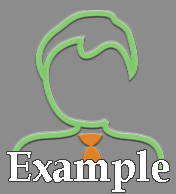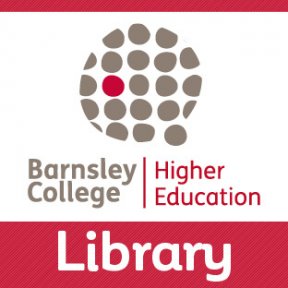In this section
Research Sources
For academic study, you need to use a wide range of information sources, including academic information sources. If you stick with the familiar – the Web, news sources – you will miss out. Don’t let your marks down with bad research!
BBC
Reading lists provided by your tutors give you an idea of the kinds of information sources they recommend and may identify specific books, articles and websites to get you started on a subject.
Once you have a general understanding of a subject, take this further. Find for yourself more sources for your assignment topics, sources which give you a more in depth understanding and help support your argument. What type of sources would be most useful to you? Textbooks are a good starting place, but once you know something about a subject area then you may wish to draw on:
- Professional magazines for up-to-date snapshots of practice are available in the Library
- Official government policy papers may be available online
- Statistics
- Articles from academic journals for primary research and up-to-date theoretical debate
 |
John has recently started a media course. His tutor’s feedback for his first assignment is that he needs to use more theoretical approaches to film analysis and reference some authoritative sources for the approaches he uses. A book on film theory and analysis at 791.4301 might be a good starting place. |
Know your sources
My learning essentials: Know your sources (University of Manchester Library) highlights 3 ways to define information sources:
- How up-to-date are they?
- Primary v secondary. A primary source is ‘straight from the horse’s mouth’ e.g. a researcher’s description of their research and the results, Act of Parliament. A secondary source describes and interprets someone else’s work.
- Academic v popular. Popular sources are written for the general public. They are generally not in depth and may be based on opinion, not evidence. The emphasis may be on entertainment with graphics and emotional language. Academic sources should be objective and based on evidence, for example, references to other’s ideas and work. They may use theoretical approaches to give a more in depth understanding.
What is a journal and a peer reviewed article? Ronald Williams Library
Anatomy of a Scholarly Article Henry Madden Library
Strength and weaknesses of different types of sources from the Open University.
Rumsey, S. (2008) How to find information: a guide for researchers (2nd ed.) Maidenhead: Palgrave Macmillan. pp23-28. Shelf number: 001.42 RUM
Cooper, H & Shoolbred, M. (2016) Where’s your argument? Maidenhead: Palgrave Macmillan. pp18-21. Shelf number: 808.066 COO
KEY Learning Points
|
Once you know what kind of source is best for the information you need, you can start searching.
For further help contact: helibrary@barnsley.ac.uk
Opening Times
| Monday | Staffed 8.30am to 5pm; Self-service 5pm to 8.45pm |
|---|---|
| Tuesday | Staffed 8.30am to 5pm; Self-service 5pm to 8.45pm |
| Wednesday | Staffed 8.30am to 5pm; Self-service 5pm to 8.45pm |
| Thursday | Staffed 8.30am to 5pm; Self-service 5pm to 8.45pm |
| Friday | Staffed 8.30am to 4.30pm |
| Saturday | Closed |
| Sunday | Closed |
Find Us
Barnsley,
S70 2YW

